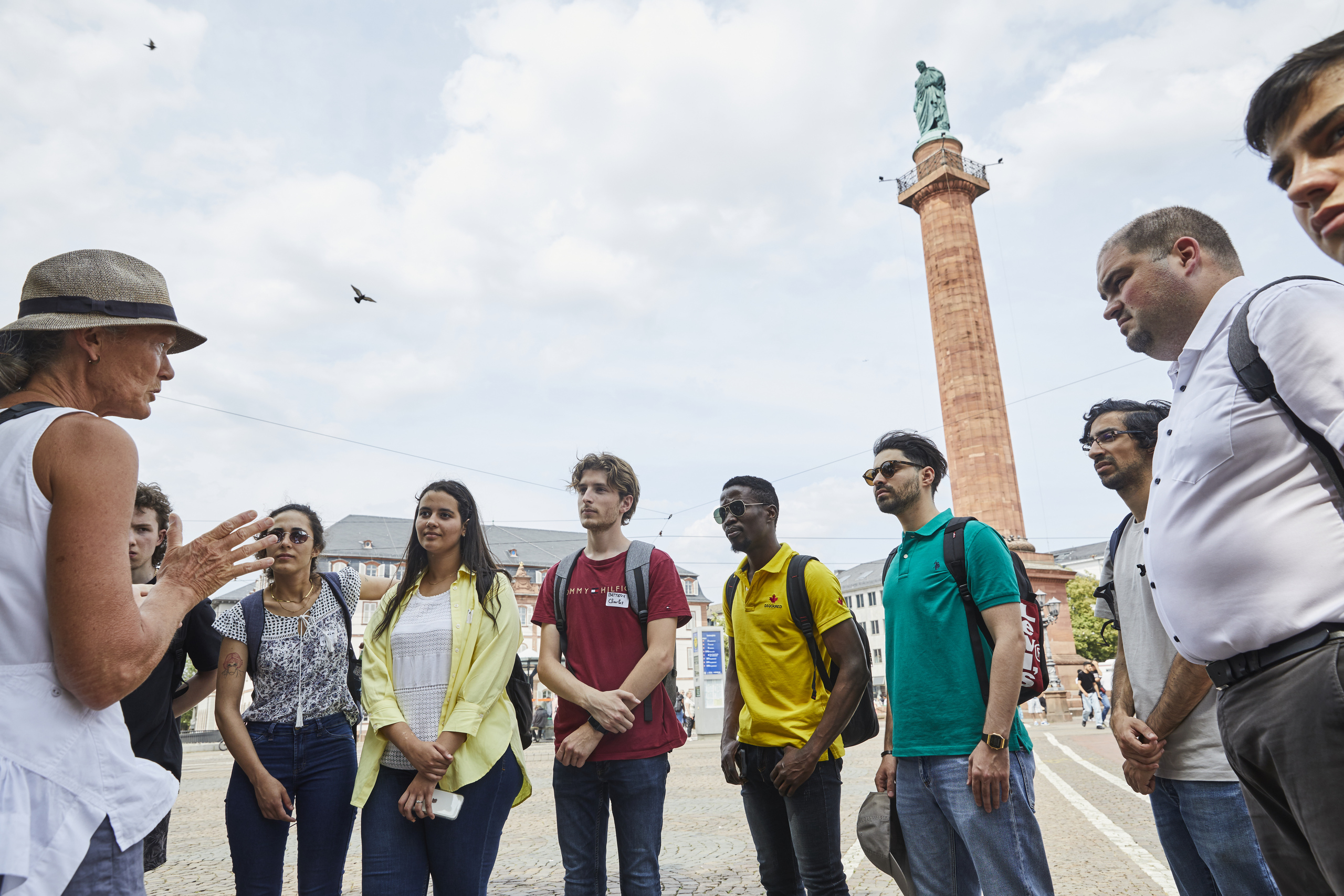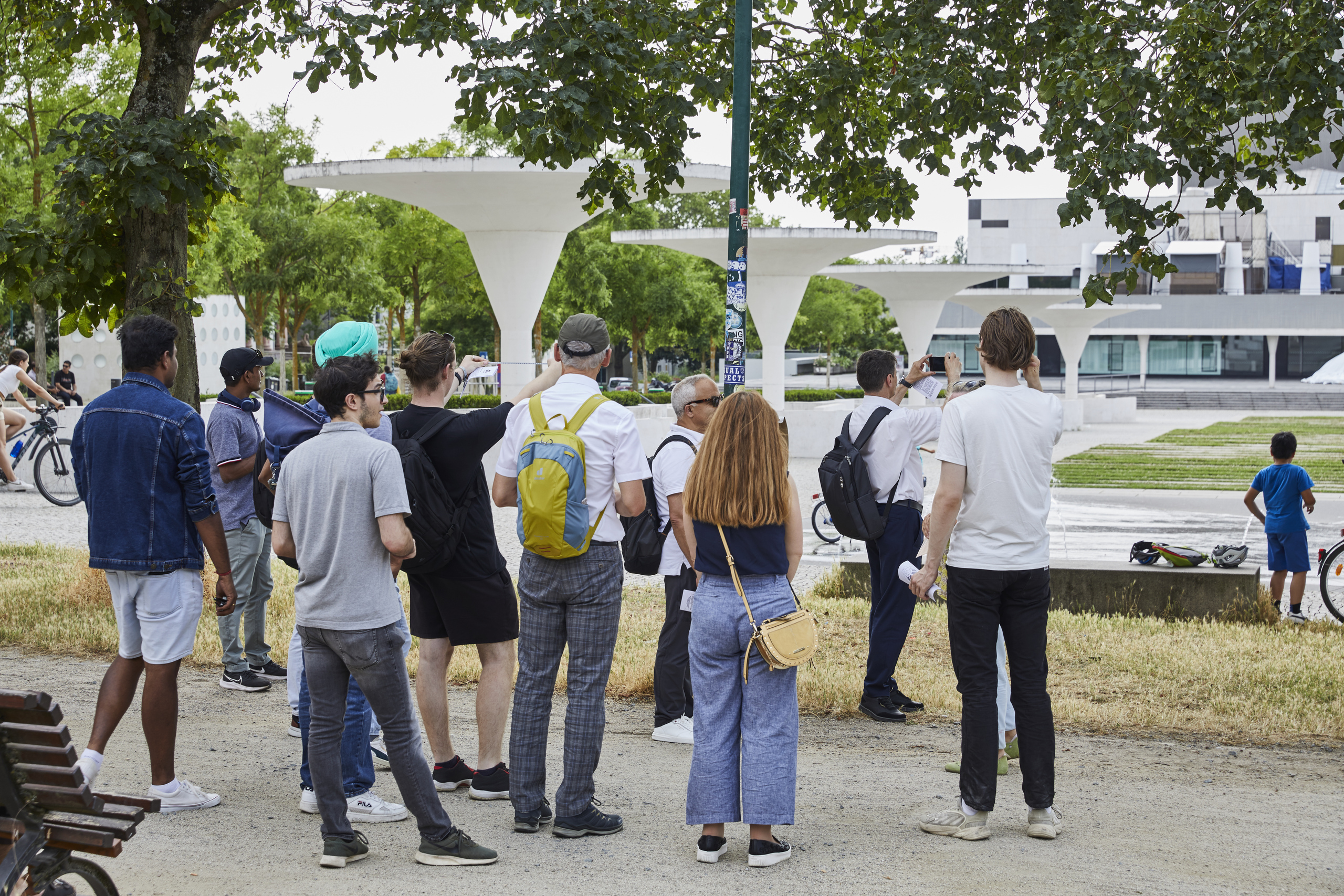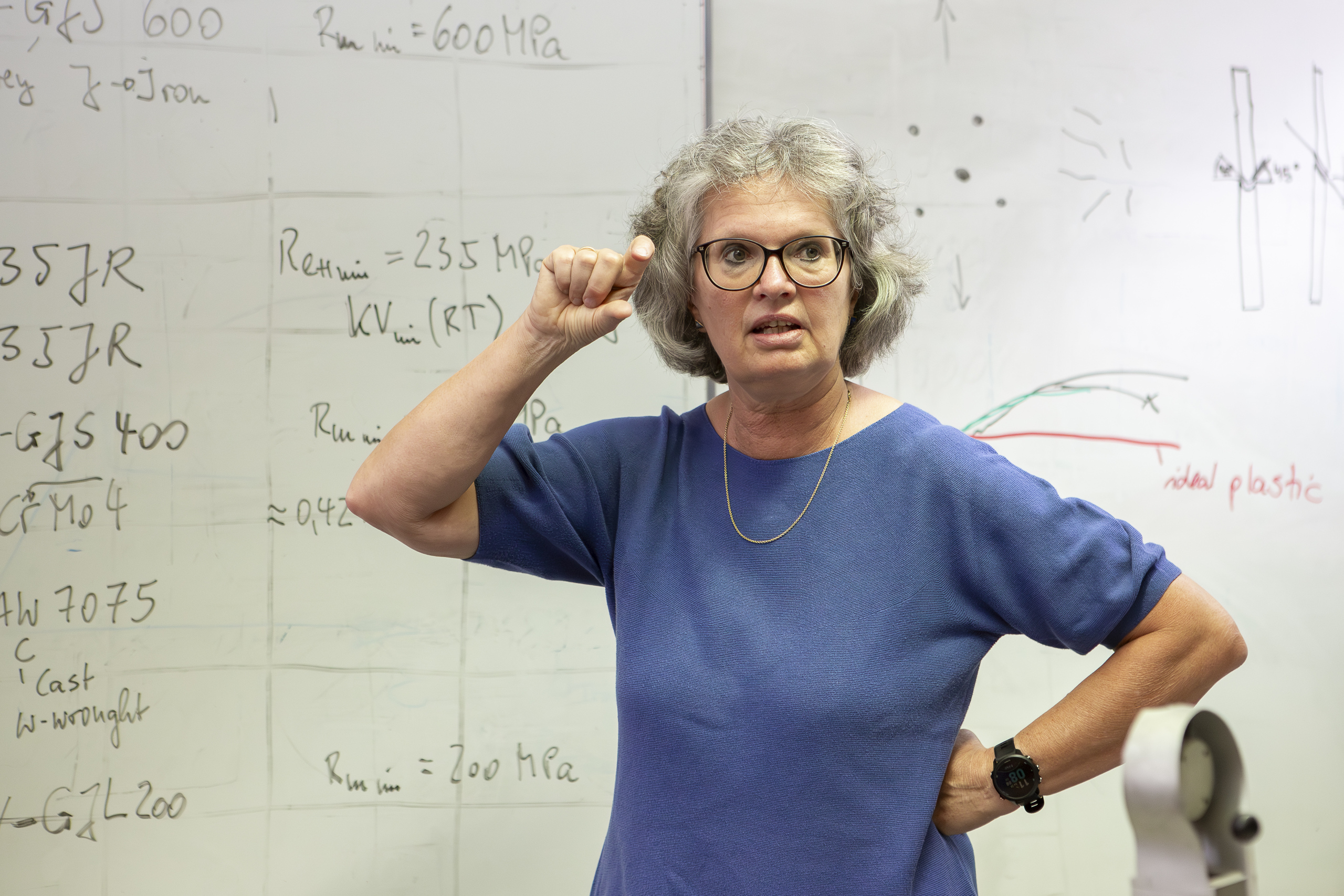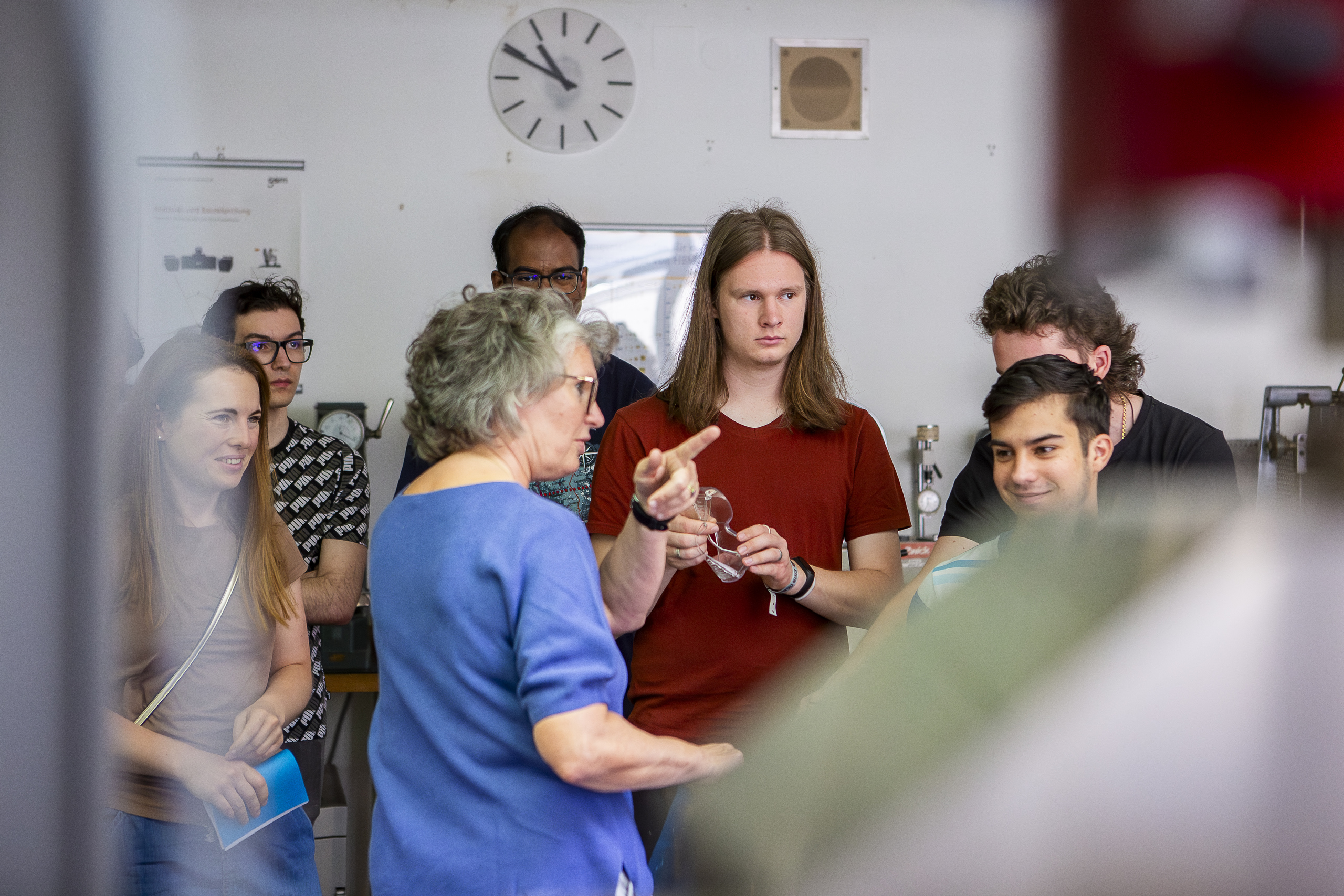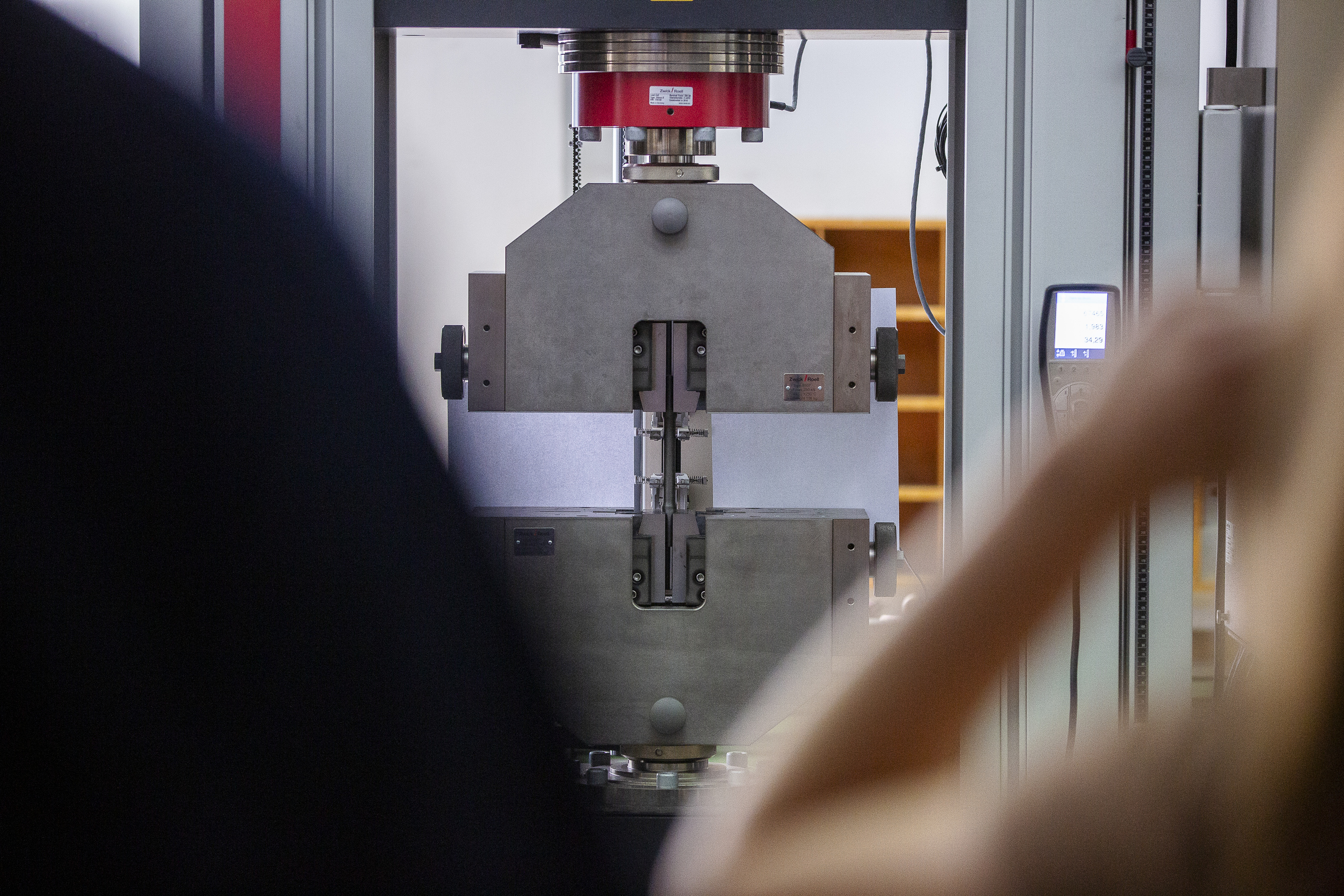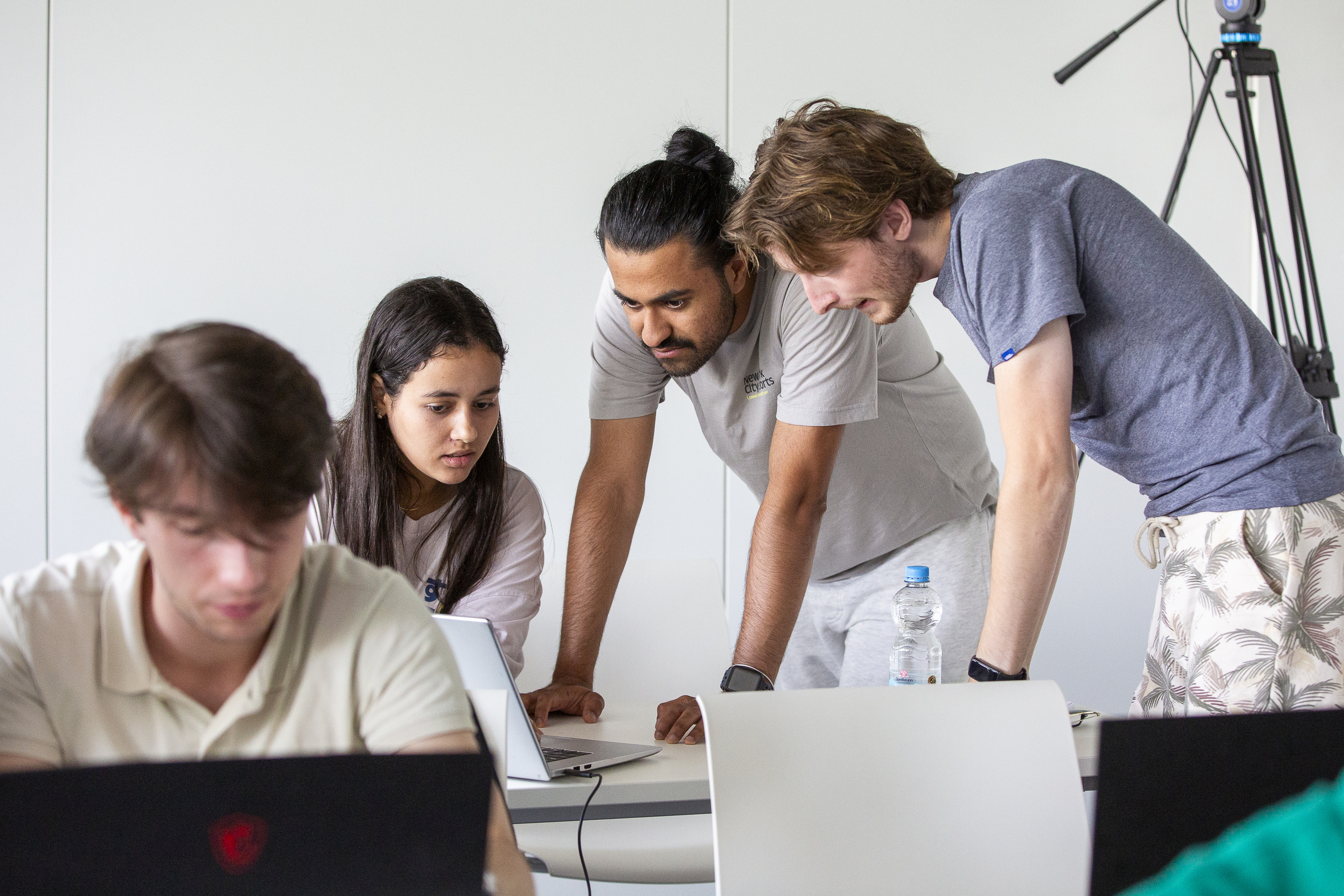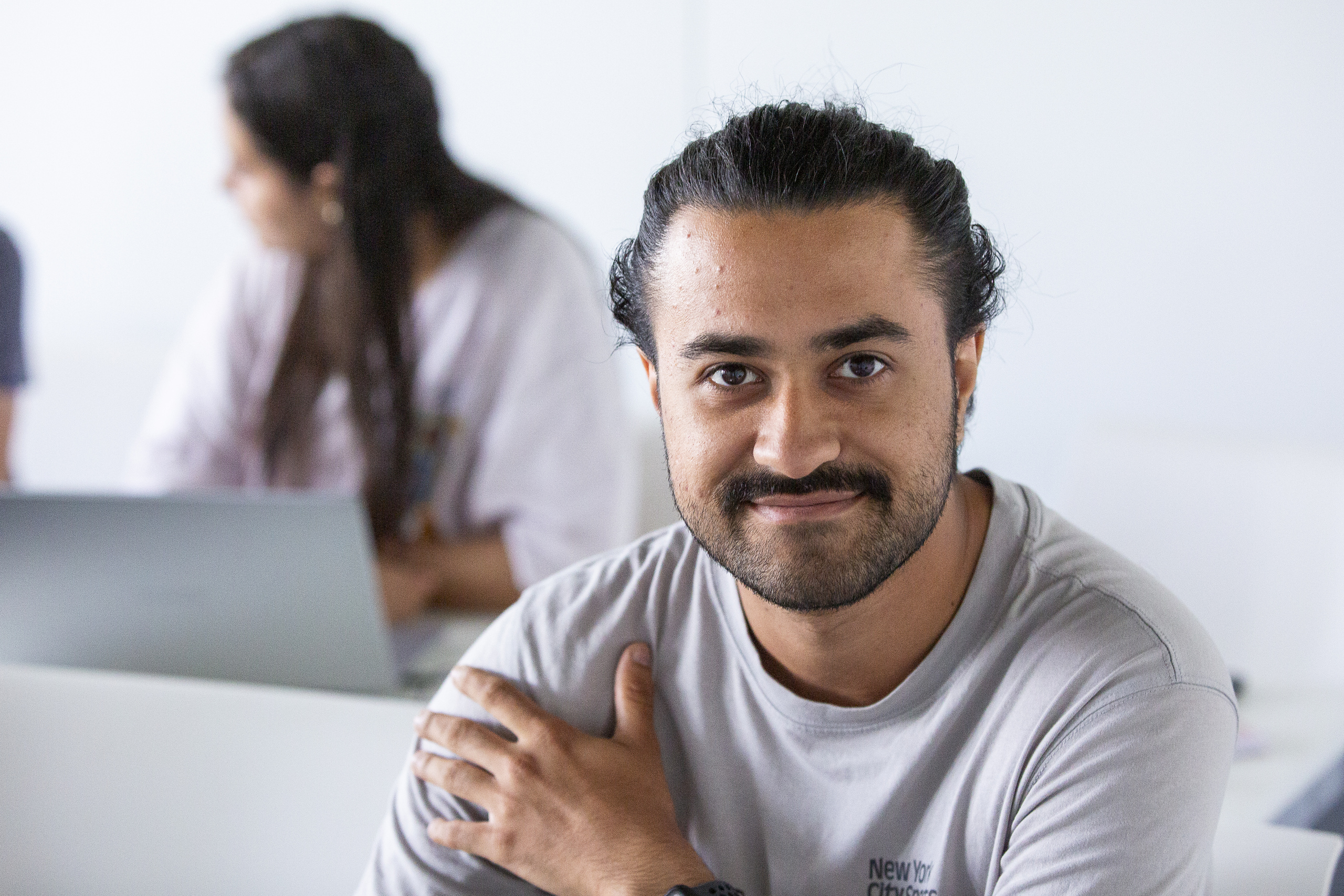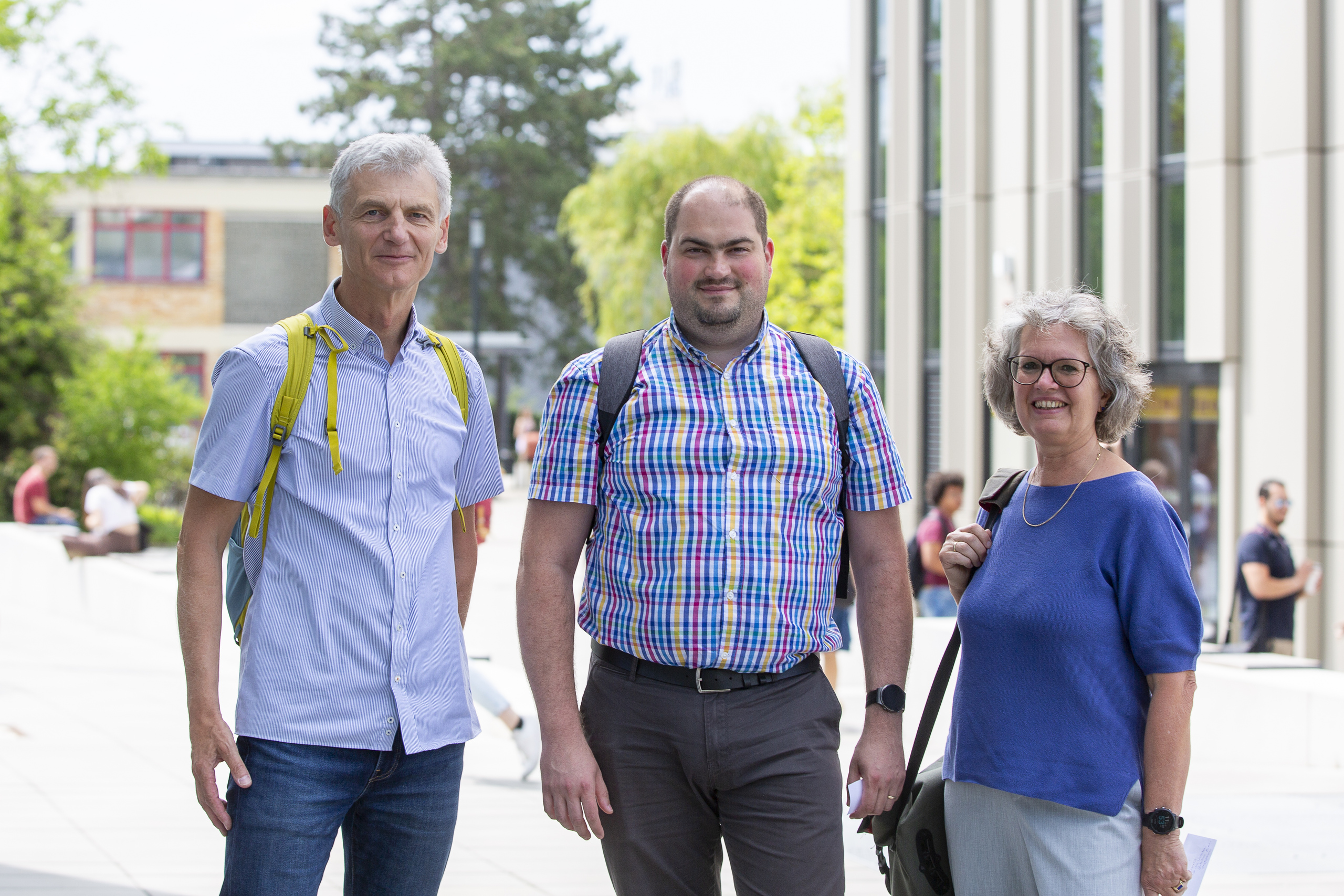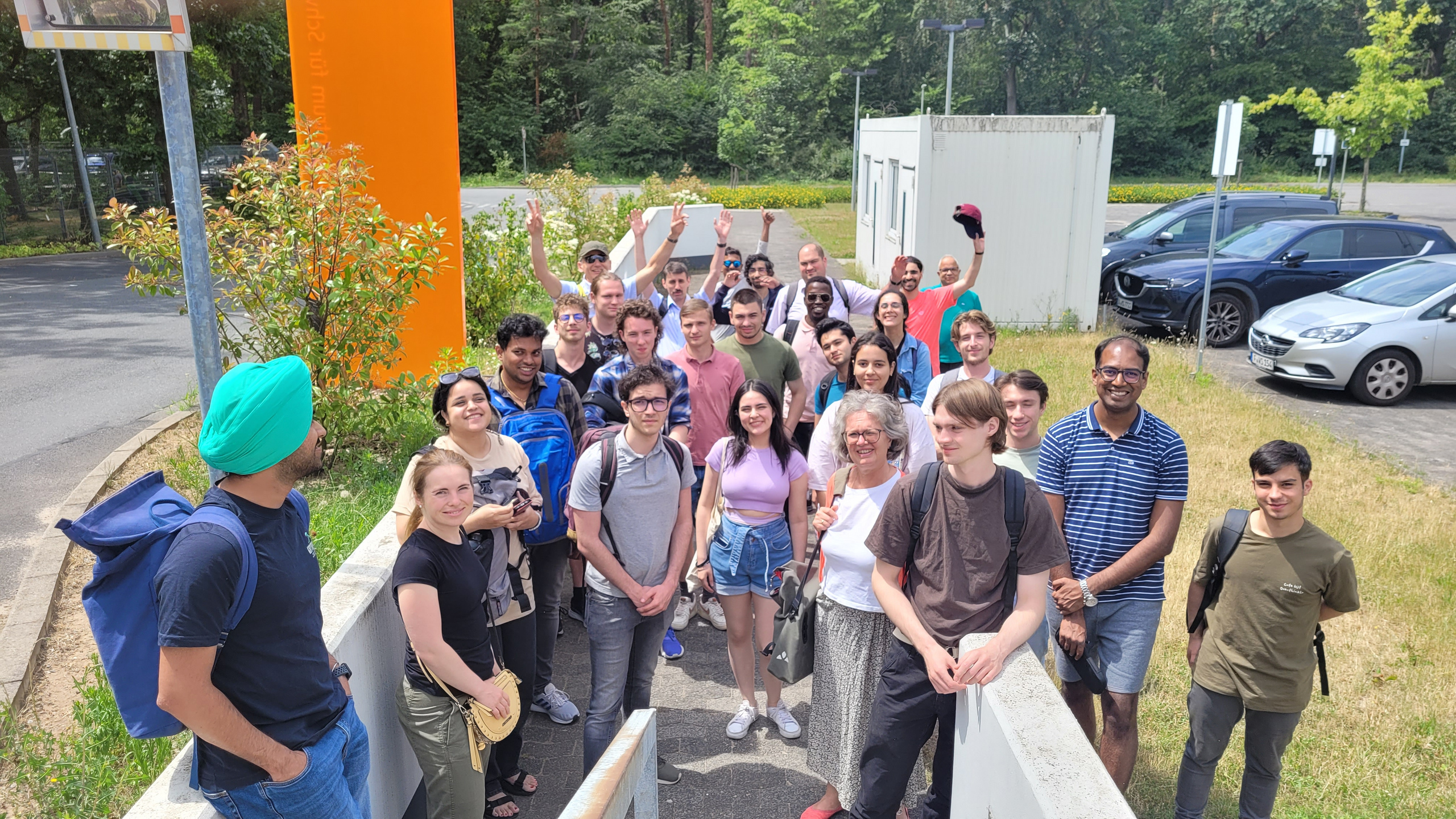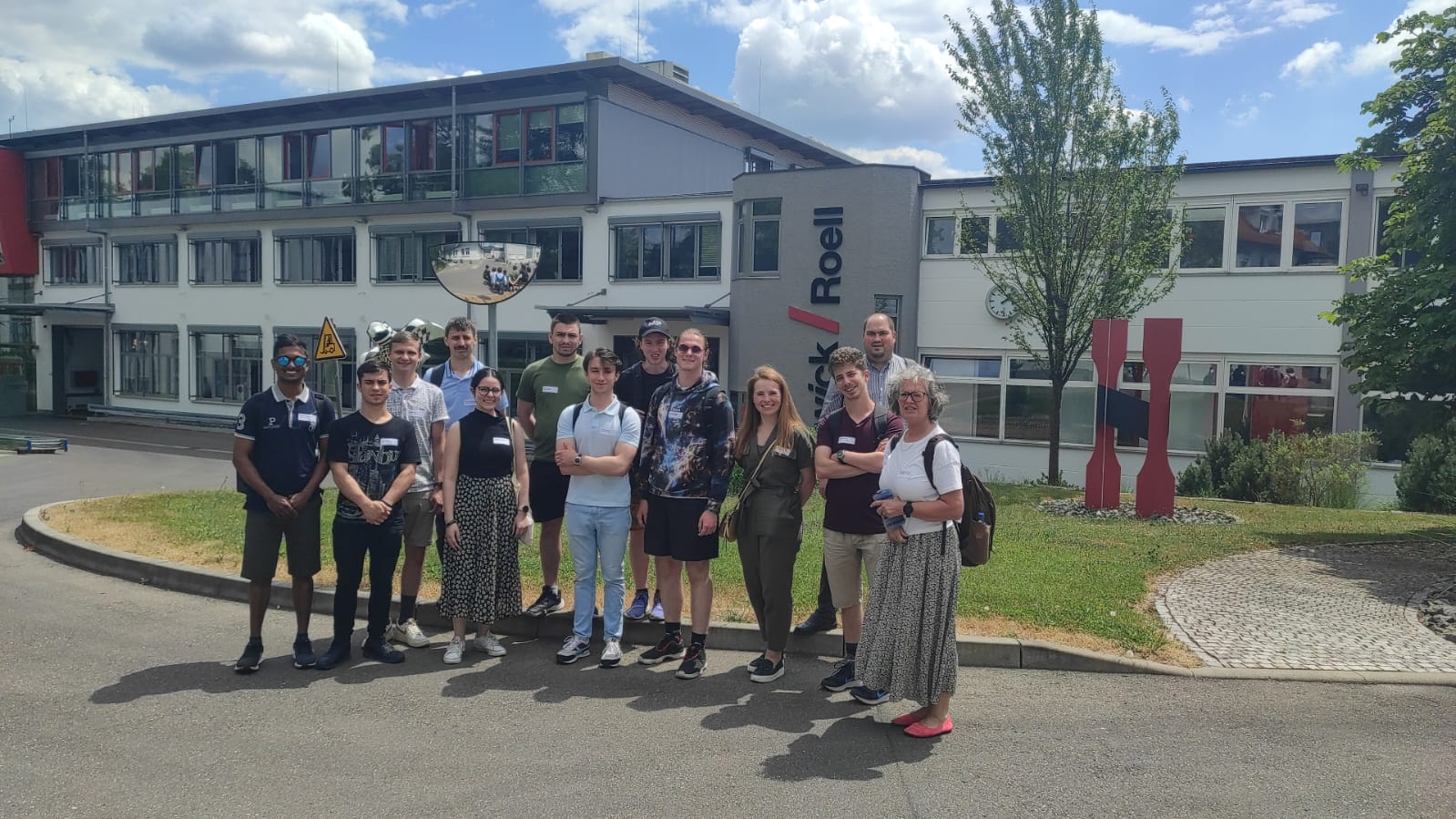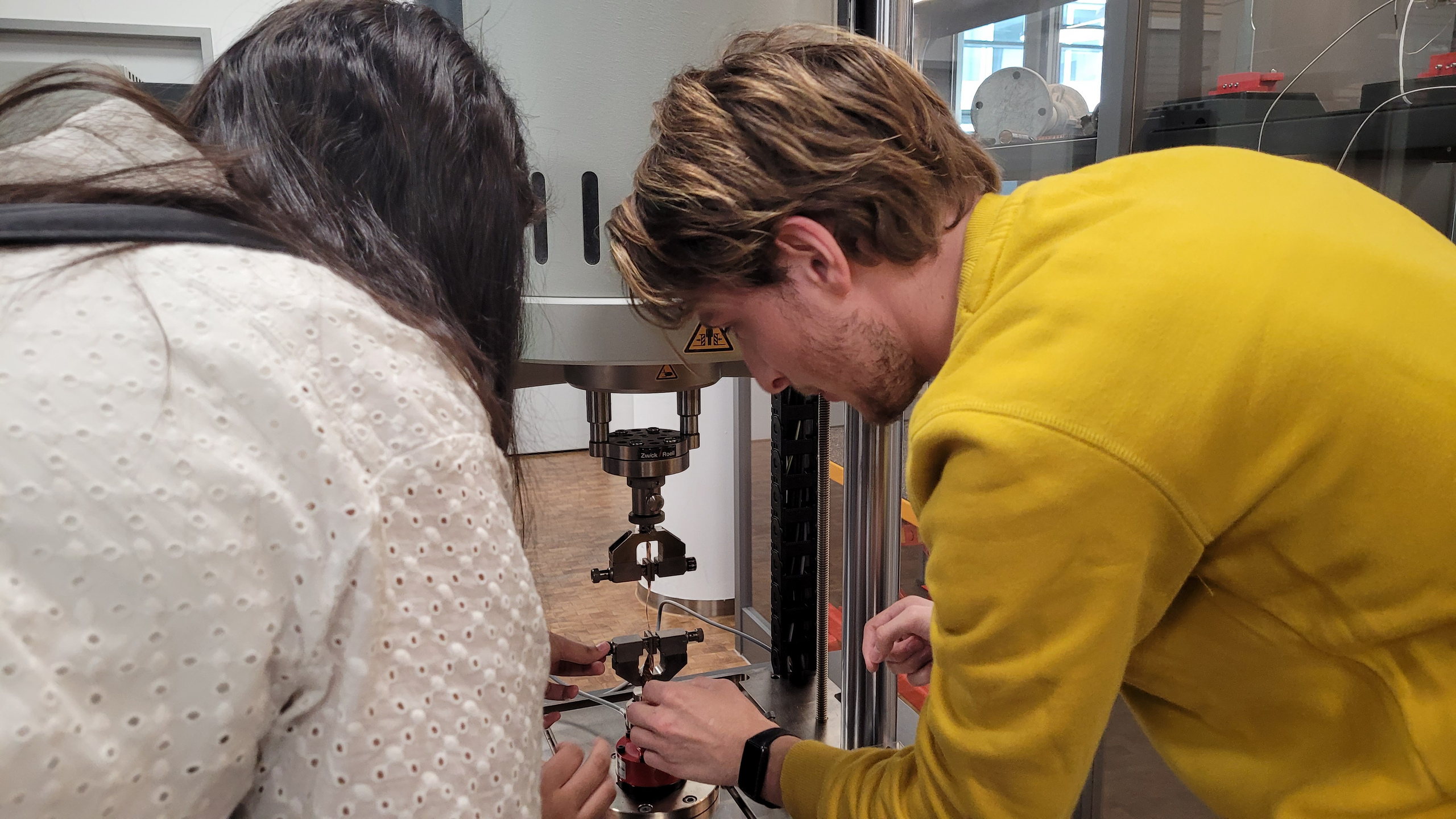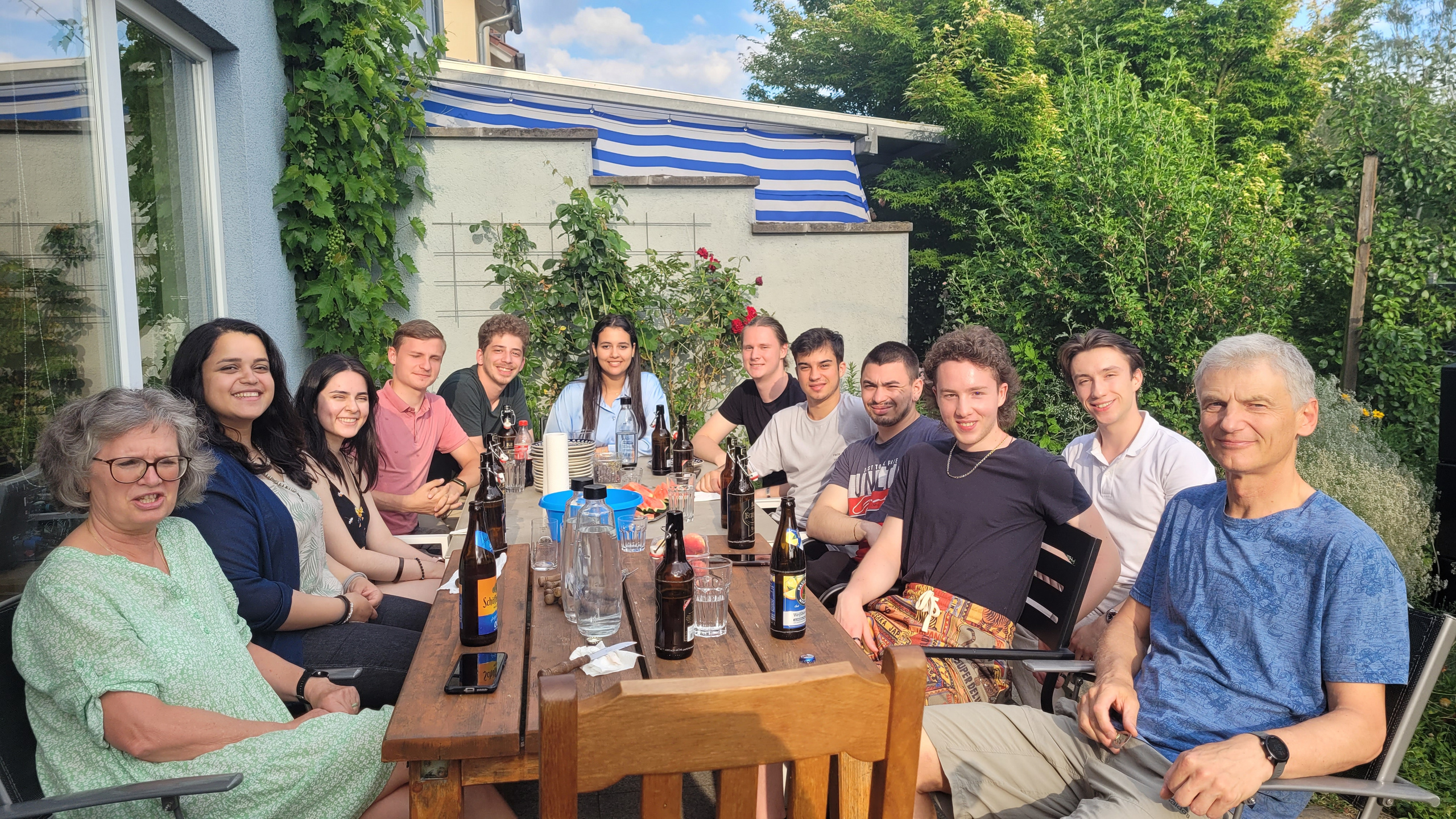Broadening horizons and making a bang
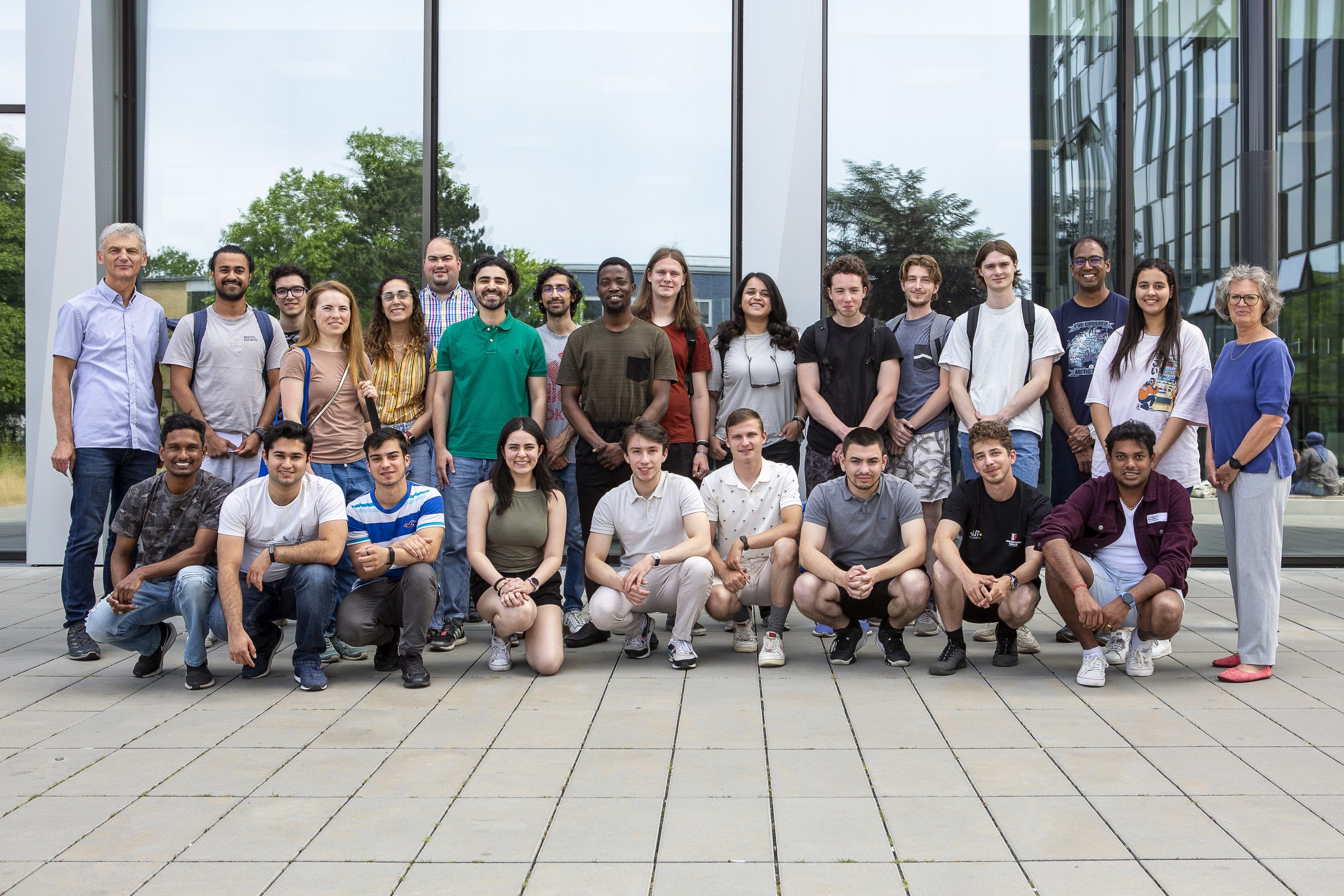
First remotely, now on site: 24 mechanical engineering students from three of h_da’s European partner universities were guests in Darmstadt for a week to undertake experiments, excursions and company visits together, having previously attended an online seminar over the course of a semester within the “EUt+ Blended Intensive Programme”. Organised for the first time at Darmstadt University of Applied Sciences and widely applauded, the next course in the European alliance is already in the planning.
By Alexandra Welsch, 3.7.2023
Buses depart, trams roll up, bikes crisscross over the paving stones, pedestrians scurry between them: Luisenplatz in the heart of Darmstadt is like playing spot-the-difference. Typical of this bustling square is that people from many nations mingle here and different languages are heard all around. On this Monday morning, they are joined by guests from Romania, Latvia and France, students from European partner universities of Darmstadt University of Applied Sciences making their first acquaintance with the city in southern Hesse on a guided tour. And as local guide Petra Wochnik is keen to emphasise at the beginning, they are in the right place: “Darmstadt is a city of science, this is a very international place, we are very much into future and digitalisation.”
This is not the only way that the young people and visitors are broadening their horizons: they have come to Darmstadt for the final week of the “Blended Intensive Programme” (BIP) organised by h_da for the first time with European partner universities within the EUt+ alliance. Over the course of a semester, 24 mechanical engineering students from Riga Technical University in Latvia, the Technical University of Cluj-Napoca in Romania, the University of Technology of Troyes in France, Technische Hochschule Mittelhessen (THM) and h_da attended a weekly online seminar together on “Material Modelling – Testing and Parameter Identification”. They are now meeting up in person for a week full of lab work, excursions, company visits and get-togethers.
“Promote exchange and facilitate international experience.”
“The aim is to promote student exchange,” explains Professor Brita Pyttel from the Faculty of Mechanical and Plastics Engineering. Together with her husband Professor Thomas Pyttel from the THM in Friedberg, she was largely responsible for designing and organising the course and the week. BIPs are a new type of Erasmus exchange programme that have been in place since 2021 and are intentionally low-threshold: “To facilitate international experience, we need to offer shorter formats – and it’s easier to integrate a week into normal university routine than, for example, a whole semester,” she says, summarising the programme’s overall intention. Because, as she knows, “going abroad for longer poses major hurdles for students.” It costs money and needs proper organisation. In addition, there are language barriers because very few courses in Germany are taught in English.
“It was an interesting opportunity for me,” reports Edward Wagner, 20, a Bachelor’s student from the University of Cluj-Napoca, during the tour. Going abroad for a whole semester is challenging, he says, but a week is doable. He has already profited a lot from the online course and especially liked the many digital elements: “That’s likely to be the future of engineering.” Amanda Arvizu from Riga, who is also 20 years old, appreciates above all the strong practical focus: “In Darmstadt, they take a very practice-oriented approach and use concrete examples from everyday work. I think that’s great!” Harman Kalsi, an international student from India at h_da, values the fact that the course is held in English throughout, in addition to the in-depth study of mechanical engineering.
Testing materials in the lab? Cover your ears!
A big bang in the lab. Then another and another. On Thursday, a group of students wearing safety goggles gathers in front of Brita Pyttel in the basement of the mechanical engineering building, fascinated by the heavy testing machine next to her. An aluminium sample is clamped in it. The humming, 6-foot-high device pulls on both ends with increasing force – three, four, five tons – as the monitor next to it shows. The curve in the chart flattens out more and more. “Attention please!” she warns, and everyone covers their ears. Then there is a muffled bang – the sample has broken in two. The curve drops away dramatically. And it looks completely different to the one from the previous test with a cast iron sample, even though that also snapped with a bang.
Not far away, in a classroom in Studierendenhaus, the other half of the participants are staring intently at their laptops. The group work led by Thomas Pyttel involves describing material behaviour numerically with various models (material modelling) on the basis of the measurement data from the material tests (testing). To do this, the students must determine characteristic parameters (parameter identification) with the free programming language Python, which Pyttel has taught them beforehand. Only when they use the right model and the right parameters are correct can the students visualise the materials’ behaviour realistically in the computer and use it for further applications.
Muesli bars as comfort food
Several boxes of muesli bars are stacked on the table at the front – comfort food! While Edward sits engrossed in front of his computer, his neighbours are studying the numbers and columns in front of them and discussing possible solutions. Amanda has meanwhile taken her laptop to the professor at the front, asking him to explain again how to adjust the curve of the measurement data to that of the model by changing numbers in the programme. All this in English, of course. “Do you understand?” Pyttel asks after explaining for quite a while, and Amanda nods: “Yeah, thank you.”
At almost the end of the busy week, the young woman from Riga is a little tired, but at the same time smarter. “This kind of programming is a completely new language for me,” she says. “But it’s an interesting tool, it structures things in a different way.” Thomas Pyttel, Professor of Mechanical Engineering, is relieved. “I enjoy seeing how students make headway,” he says. On Monday, he says, he was still rather doubtful at the end of the day and worried that the subject matter was too complicated. “But everything is fine now.”
Company visits as a highlight
Many of the participants think that the visits to nearby companies and organisations were one of the highlights of the week. The programme included, for example, the GSI Helmholtz Centre for Heavy Ion Research in the north of Darmstadt and the mechanical engineering company Zwick/Roell in Ulm. “It was very interesting to see how the approaches we’ve learnt are applied in practice,” remarks Valeriu Barbut from h_da’s partner university in Romania. Maha Oba from Troyes also thought that was great and is particularly enthusiastic about the BIP: “This is such a tremendous project.” From exchanging ideas with professors and experimenting to modelling with Python – “I’ve learnt so much.” For the international student from Morocco, it is also her first time abroad. And she has established that it has also helped her to progress beyond the actual subject matter. “You can see how science unites us.” She would like to experience that more often, she says.
It is precisely these effects that the BIP aims to achieve. “We are seeing so many wonderful synergies in this project,” says Friederike Luther from h_da’s International Office as co-organiser. It allows the partner universities to get to know each other even better, she says. “The students can broaden their horizons, it’s a formative experience,” adding that they acquire a whole package of soft skills. In addition, they are awarded ECTS credits at the end of the high-quality course that count towards their degree. And the whole programme is helping h_da to take a big step forward on its path towards greater internationalisation.
It is therefore no surprise that h_da’s future Vice President for Teaching, Learning and Collegiate Affairs, Matthias Vieth, is also full of praise: “This is a social, economic and academic contribution to the idea of European integration,” he said when welcoming the group. In his view, the EUt+ course is an outstanding example of what is possible when universities work closely together. That this will not be the last time is already clear. Next year, the course will take place online again, but the in-person week will be at another partner university. And another BIP project is already in the planning for 2024, organised this time by the Faculty of Media in cooperation with partner universities in Cyprus and Dublin.
Contact
Christina Janssen
Science Editor
University Communication
Tel.: +49.6151.533-60112
Email: christina.janssen@h-da.da
Translation: Sharon Oranski
